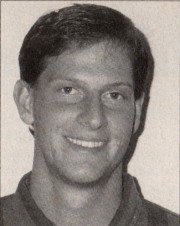5 ways to set yourself apart in our crowded industry
Several years ago when the Florida Marlins radio play-by-play job opened, the team received 250 applications for the position. That is still the largest number of applicants I have ever heard of for a sports broadcasting position.
How do you stand out in a crowd that big?

Very few things in your career will ever be more frustrating than repeatedly getting passed over for jobs when you know you are just as good as the people who are landing the positions. How many times have you said to yourself, “If only somebody would just give me a chance?”
Read More





 Four years ago,
Four years ago, 

 The traditional path to a sports broadcasting career might not be for you.
The traditional path to a sports broadcasting career might not be for you.